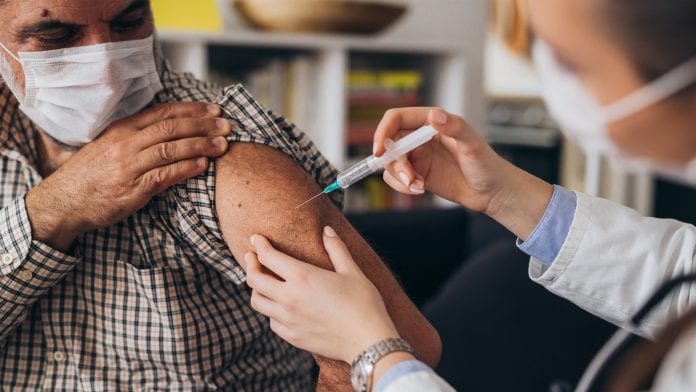
The first independent analysis in the UK of the Pfizer-BioNTech vaccine has shown it is effective against COVID-19 from the first dose.
The data from the SIREN study which has been analysed by Public Health England (PHE) shows the Pfizer-BioNTech vaccine provides high levels of protection against infection and symptomatic disease from the first dose. The results also show a promising impact on preventing infection in healthcare workers under the age of 65, with a reduced risk of catching infection by more than 70% and rising to 85% after the second dose.
The vaccine may also help to interrupt virus transmission, as you cannot spread the virus if you do not have the infection.
Health Secretary Matt Hancock said: “This crucial report shows vaccines are working – it is extremely encouraging to see evidence that the Pfizer vaccine offers a high degree of protection against coronavirus. Vaccines save lives, and so it is vital we roll out the vaccine programme as fast as possible, and that as many people as possible take the jab. This new evidence shows that the jab protects you and protects those around you.
“It is important that we see as much evidence as possible on the vaccine’s impact on protection and on transmission, and we will continue to publish evidence as we gather it. As we roll out the jab, it is vital people continue to play their role in protecting the NHS by sticking with the rules.”
First dose effectiveness
The analysis shows that the first dose of the COVID-19 vaccine offers up to 57% protection against the virus in those over the age of 80 from three to four weeks after having been inoculated and that the second dose increases this by 30%.
According to the analysis, the risk of dying in those aged over 80 is less than half (56%) in vaccinated cases compared to unvaccinated cases, at least 14 days after receiving the first dose. These high levels of protection are also seen against the variant of concern (B.1.1.7) first identified in South East England in December 2020.
Dr Mary Ramsay, Head of Immunisation at PHE, said: “This is strong evidence that the Pfizer-BioNTech vaccine is stopping people from getting infected, while also protecting cases against hospitalisation and death. We will see much more data over the coming weeks and months, but we should be very encouraged by these initial findings.
“But protection is not complete, and we don’t yet know how much these vaccines will reduce the risk of you passing COVID-19 onto others. So even if you have been vaccinated, it is really important that you continue to act like you have the virus, practice good hand hygiene and stay at home.”
There is also good evidence suggesting that giving the second dose of AstraZeneca later will lead to much higher levels of protection. Offering the booster at 12 weeks will therefore help to ensure longer lasting protection beyond the current restrictions.








